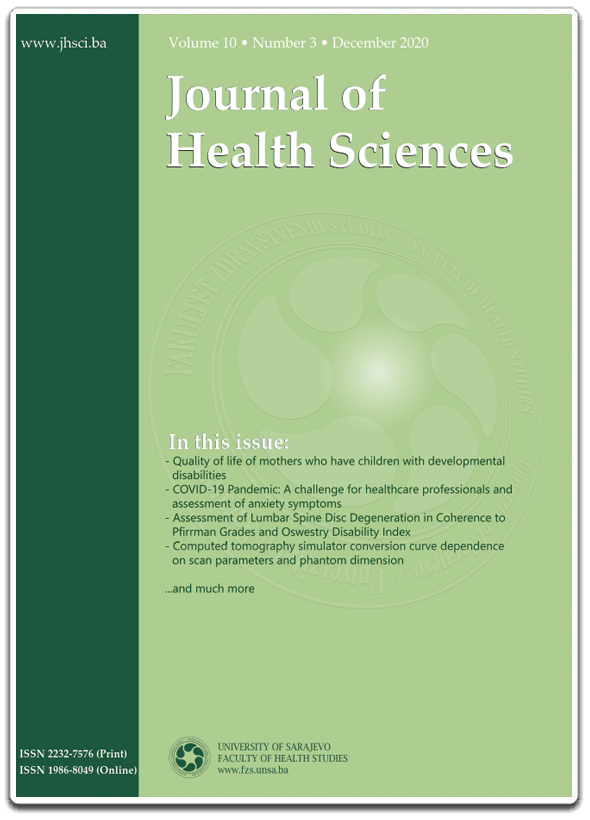Endocarditis lenta-patient survived septic shock: a case report
DOI:
https://doi.org/10.17532/jhsci.2012.55Keywords:
Endocardtitis lenta, prosthetic valve infection, septic shock, false positive Q-feverAbstract
Infective endocarditis is defi ned as an infection of the endocardial surface of the heart. Its intracardiac effects include severe valvular insuffi ciency, which may lead to intractable congestive heart failure and myocardialabscesses. This disease still carries a poor prognosis and a high mortality.
A severe case of infective endocarditis with its complications is presented. A man with aortic prosthetic valve due to earlier aortic stenosis and corrected aortal coarctation and implanted pacemaker presented
with prolonged unexplained fever, malaise, sweating, weight loss (15 kg/4 months) and lumbar pain. He was treated with broad-spectrum antibiotics prior IE diagnosis was considered. Echocardiogram showed
aortic vegetations and possible periaortal abscess formation. Nonspecifi c infl ammation parameters were high positive. Cultures were constantly negative. His condition had deteriorated suddenly, and he had presented
with worsening of cutaneous vasculitis, subacute glomerulonephritis and subsequent acute respiratory distress syndrome and septic shock. This patient survived with residual bilateral necrosis of the feet and
toxic peroneal paresis. At the end transthoracic echocardiogram showed enlarged heart chambers, LV mild dilated and concentric hypertrophy with ejection fraction about 40%, degenerative postinfl ammatory mitral
valve changes, mild mitral regurgitation and tricuspid regurgitation, postinfl ammatory aortic root fi brosis and moderate aortic valve stenosis (AVPG max 50,9 mmHg, AVPG mean 24 mmHg) with no pericardial effusion. Initial suspicion of Q fever was defi nitely excluded by serological testing showing nonspecifi c IgM positivity,
probably rheumatoid factor related.
Downloads
Download data is not yet available.
Downloads
Published
15.09.2012
Issue
Section
Research articles
How to Cite
1.
Endocarditis lenta-patient survived septic shock: a case report. JHSCI [Internet]. 2012 Sep. 15 [cited 2026 Feb. 16];2(2):153-8. Available from: https://www.jhsci.ba/ojs/index.php/jhsci/article/view/74










